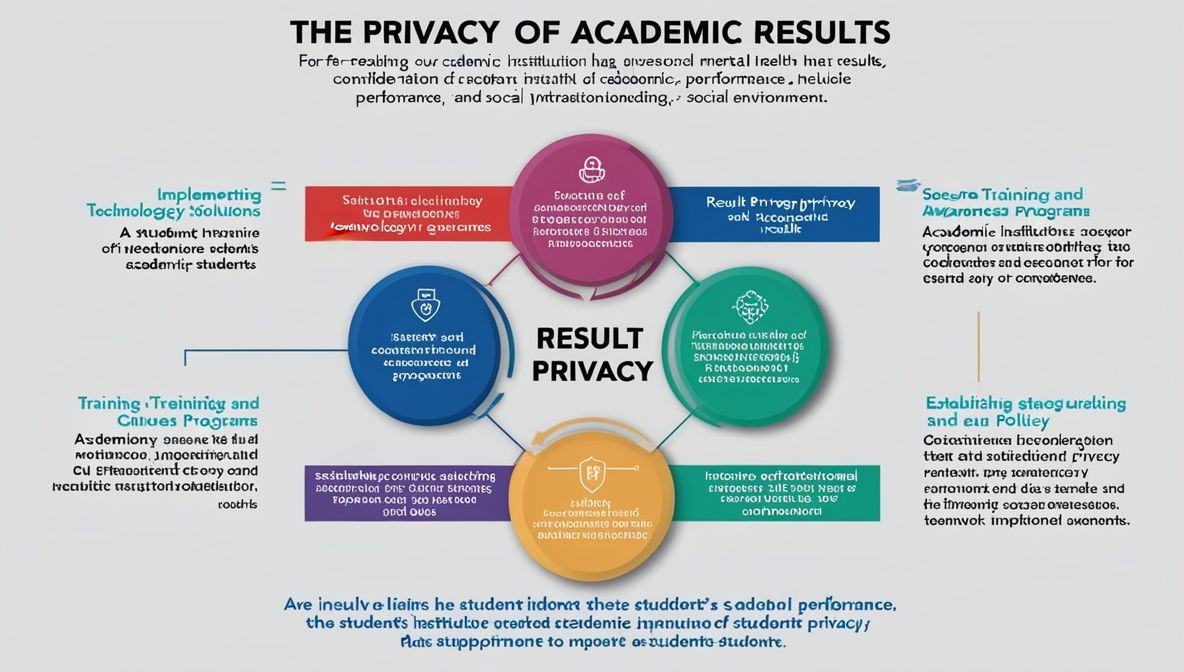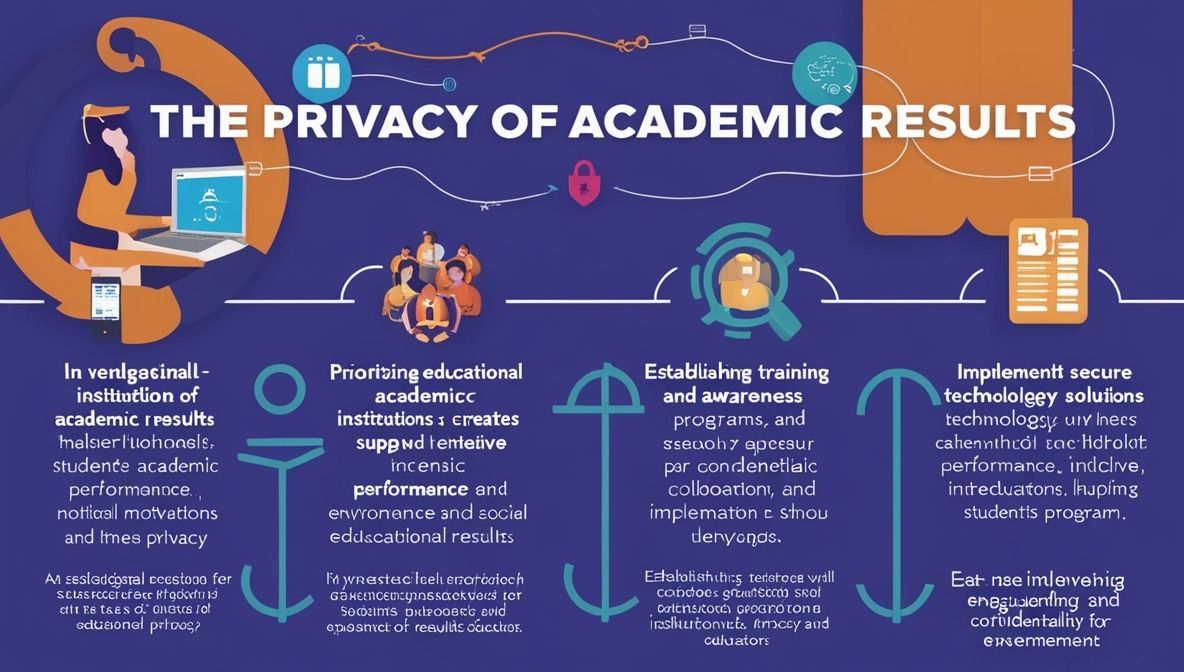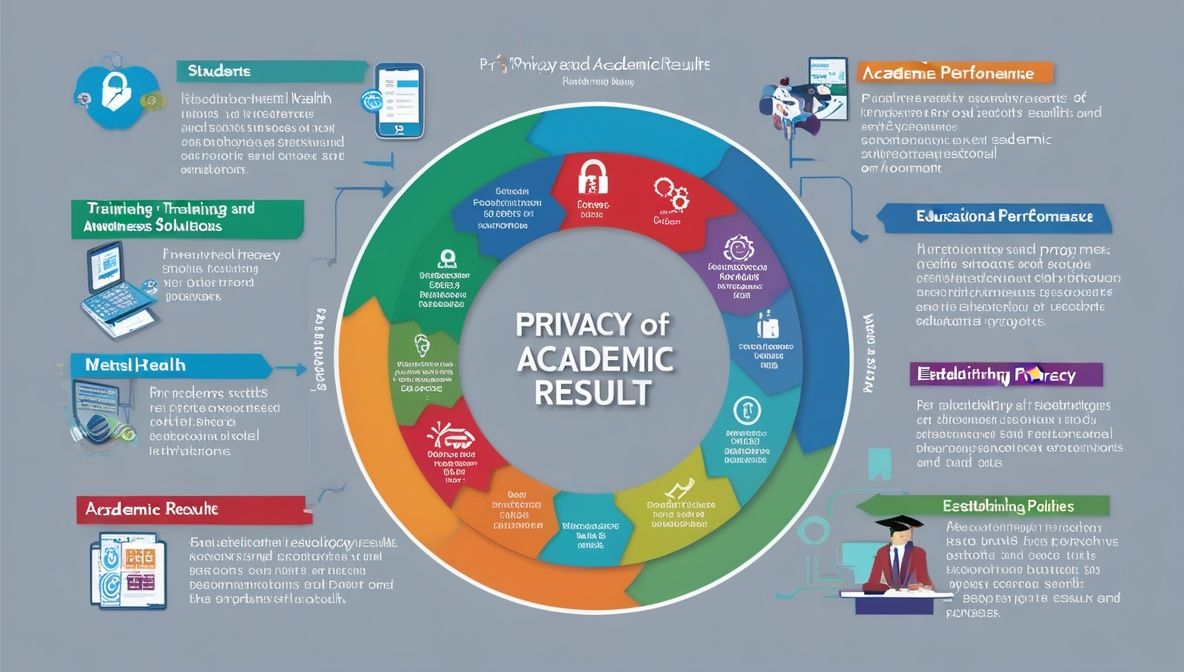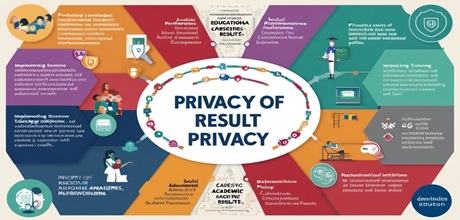Introduction
Result Privacy Impacts on Students in the digital age, where data privacy concerns are paramount, the issue of result privacy in education has garnered significant attention. Result privacy pertains to the confidentiality and secure handling of students’ academic performance data. Ensuring the privacy of students’ results has a multifaceted impact on their academic journey and overall well-being. This article explores the various dimensions of result privacy, examining its implications on students’ mental health, academic performance, social interactions, and the broader educational environment.
Mental Health and Emotional Well-Being
- Reduced Stress and Anxiety: When students’ academic results kept private, it can significantly reduce stress and anxiety levels. Public exposure of grades often leads to comparisons among peers, which can be detrimental to students’ self-esteem and mental health. Knowing that their results are confidential allows students to focus on learning rather than worrying about how they measure up against their peers.
- Improved Self-Esteem: Confidentiality of academic results helps maintain students’ self-esteem, particularly for those who may not perform as well as their peers. Publicly displayed results can stigmatize lower-performing students, leading to feelings of inadequacy and discouragement. By keeping results private, educators can create a more supportive and nurturing environment that encourages all students to improve without fear of judgment.

Academic Performance and Motivation
- Enhanced Focus on Learning: Privacy in academic results encourages students to concentrate on their personal growth and learning rather than competing with others. This intrinsic motivation can lead to a deeper understanding of the subject matter and a genuine interest in education. Students are more likely to take academic risks and engage in creative problem-solving when they are not preoccupied with the potential social ramifications of their grades.
- Encouragement of Risk-Taking and Innovation: When students assured that their academic results will remain private, they may feel more comfortable experimenting with new learning strategies and tackling challenging subjects. This can foster a culture of innovation and critical thinking, where students are not afraid to make mistakes and learn from them. The fear of public failure often stifles creativity and limits students’ willingness to explore uncharted academic territories.
Social Interactions and Peer Dynamics
- Reduction of Peer Pressure: Public disclosure of academic results can exacerbate peer pressure and create unhealthy competition among students. This competitive environment can strain friendships and lead to social isolation for those who do not perform well. Result privacy helps mitigate these issues by fostering a more inclusive atmosphere where students support each other’s learning journeys rather than competing for the top spot.
- Promotion of Collaboration: When academic results kept private, students are more likely to engage in collaborative learning experiences. They can work together, share knowledge, and support each other without the fear of being judged based on their individual performances. This collaborative approach not only enhances learning outcomes but also builds a sense of community and teamwork among students.

Educational Environment and Institutional Trust
- Building Trust Between Students and Educators: Ensuring the privacy of academic results helps build trust between students and educators. When students trust that their personal information will be handled with care and confidentiality, they are more likely to be honest about their learning challenges and seek help when needed. This open communication is crucial for addressing learning gaps and providing targeted support.
- Compliance with Data Protection Regulations: In many regions, educational institutions are required to comply with data protection regulations that mandate the privacy and security of student information. Adhering to these regulations not only protects students’ privacy but also safeguards institutions from legal and reputational risks. Institutions that prioritize result privacy demonstrate their commitment to ethical practices and student welfare.
Technological Solutions and Implementation Strategies
- Secure Digital Platforms: To ensure the privacy of academic results, educational institutions should invest in secure digital platforms that allow for the safe storage and sharing of student data. These platforms should include features such as encryption, access controls, and audit trails to protect against unauthorized access and data breaches.
- Training and Awareness Programs: Educators and administrative staff should receive regular training on data privacy best practices and the importance of maintaining result confidentiality. Awareness programs can help cultivate a culture of privacy and security within the institution, ensuring that all stakeholders understand their roles and responsibilities in protecting student data.
- Clear Policies and Procedures: Establishing clear policies and procedures for handling academic results is essential for maintaining privacy. These policies should outline the processes for collecting, storing, sharing, and disposing of student data, as well as the consequences of non-compliance. Transparent policies help build trust and ensure consistency in privacy practices.

Addressing Challenges and Concerns
- Balancing Transparency and Privacy: While result privacy is important, it is also essential to maintain a level of transparency that allows for accountability and improvement. Educational institutions should find a balance between protecting students’ privacy and providing necessary feedback and reporting to stakeholders such as parents, teachers, and policymakers.
- Navigating Cultural and Contextual Differences: The approach to result privacy may vary depending on cultural and contextual factors. In some cultures, public recognition of academic achievement is highly valued, while in others, privacy is prioritized. Educational institutions should consider these cultural nuances when designing and implementing result privacy policies.
Conclusion
The privacy of academic results has far-reaching implications for students’ mental health, academic performance, social interactions, and the overall educational environment. By prioritizing result privacy, educational institutions can create a supportive and inclusive atmosphere that fosters intrinsic motivation, collaboration, and trust. Implementing secure technological solutions, providing training and awareness programs, and establishing clear policies are crucial steps in safeguarding student data and ensuring the confidentiality of academic results. As we navigate the digital age, the importance of result privacy will continue to grow, making it an essential consideration for educators and policymakers alike.

basetr
a8uumn
xlkln4
t39fol
Its such as you read my thoughts! You seem to grasp so much approximately this, like you wrote the e book in it or something. I believe that you could do with a few to pressure the message home a bit, however other than that, that is magnificent blog. A fantastic read. I’ll definitely be back.
Togel Terpercaya : Daftar Togel Online yang Aman dan Terpercaya
Wake up your way with this premium CD player alarm clock radio. Whether you prefer to rise with the AM/FM radio, your favorite CD, or a standard buzzer, this versatile alarm clock with CD player has you covered. Its intuitive design includes dual alarms, a large digital display, snooze/sleep timers, and USB charging for your phone. Enjoy high-quality stereo sound from a compact unit that fits easily on any bedside table or shelf. The best clock radios with CD player combine retro functionality with modern convenience—and this one leads the pack.
This all-in-one clock radio CD player is more than just an alarm—it’s a full media hub. Along with a traditional CD player, it features AM/FM radio, Bluetooth connectivity, and a wireless remote control. Dual alarms make it easy to set different wake times, while the large LED display ensures easy readability. With rich stereo sound and multiple playback options, it’s one of the best clock radios with CD player and Bluetooth functionality. Great for music lovers who value versatility in a radio alarm clock CD player setup.
amei este site. Para saber mais detalhes acesse o site e descubra mais. Todas as informações contidas são conteúdos relevantes e únicos. Tudo que você precisa saber está está lá.
Wow that was strange. I just wrote an incredibly long comment but after I clicked submit my comment didn’t appear. Grrrr… well I’m not writing all that over again. Anyhow, just wanted to say fantastic blog!
Hi my friend! I wish to say that this post is amazing, nice written and come with almost all important infos. I?¦d like to look extra posts like this .
Hello! I’ve been following your web site for a long time now and finally got the courage to go ahead and give you a shout out from New Caney Tx! Just wanted to say keep up the excellent work!
Usually I do not read article on blogs, but I would like to say that this write-up very forced me to try and do so! Your writing style has been amazed me. Thanks, very nice post.
Today, I went to the beachfront with my children. I found a sea shell and gave it to my 4 year old daughter and said “You can hear the ocean if you put this to your ear.” She placed the shell to her ear and screamed. There was a hermit crab inside and it pinched her ear. She never wants to go back! LoL I know this is completely off topic but I had to tell someone!
Thank you for every other magnificent post. The place else may just anyone get that kind of information in such a perfect manner of writing? I’ve a presentation next week, and I am on the look for such information.
Currently it appears like WordPress is the top blogging platform available right now. (from what I’ve read) Is that what you are using on your blog?
Thanks , I’ve just been searching for information about this topic for a while and yours is the best I’ve came upon so far. But, what concerning the conclusion? Are you certain about the source?
I haven’t checked in here for some time since I thought it was getting boring, but the last several posts are great quality so I guess I’ll add you back to my everyday bloglist. You deserve it my friend 🙂
Only wanna input on few general things, The website design and style is perfect, the subject material is rattling great. “Crime does not pay … as well as politics.” by Alfred E. Newman.